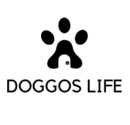
Introduction
Potatoes are a staple ingredient in many households around the world and are used in a variety of delicious dishes. As responsible pet owners, we naturally ask ourselves, “Can dogs eat potato?” This comprehensive article delves into the world of dogs and potatoes. We explore the potential benefits and risks associated with feeding potatoes to dogs and provide guidance on how to do so safely.
1. Nutritional Value of Potatoes
To understand whether potatoes can be a part of your dog’s diet, it’s essential to first examine the nutritional content of this popular root vegetable.
(a) Macronutrients in Potatoes
Potatoes are primarily composed of carbohydrates (starch) and are therefore an excellent source of energy for humans and animals. It also contains fiber, which aids in digestion. From a macronutrient standpoint, potatoes are relatively low in protein and fat.
(b) Vitamins and Minerals
Potatoes are rich in essential vitamins and minerals such as vitamin C, vitamin B6, potassium, and manganese. These nutrients are beneficial to dogs when consumed in moderation.
2. Potential Benefits of Feeding Potatoes to Dogs

While potatoes may not be a primary component of your dog’s diet, there are potential benefits to including them in moderation.
(a) Dietary Fiber
The fiber in potatoes aids your dog’s digestion and helps regulate bowel movements. This is especially helpful for dogs with mild digestive problems.
(b) Vitamins and Minerals
Potatoes are rich in vitamins and minerals that can contribute to your dog’s overall health. For example, vitamin C supports the immune system and potassium is essential for proper muscle function.
(c) Low in Allergens
Potatoes are not common allergens for dogs, making them a safe choice for dogs with food sensitivities.
3. Risks Associated with Feeding Potatoes to Dogs
While there are potential benefits, it’s crucial to be aware of the risks that come with feeding potatoes to dogs.
(a) Obesity
Potatoes are rich in carbohydrates, which can lead to weight gain if not consumed in moderation. This is especially concerning for dogs that tend to be obese.
(b) Digestive Issues
Feeding your dog too many potatoes can cause digestive problems such as diarrhea and bloating. It is important to introduce this food slowly and monitor your dog for any side effects.
(c) Toxicity Concerns
Potatoes belong to the Solanaceae family, and certain parts of the plant, such as the leaves and stems, contain toxic compounds called solanine and chaconine. These toxins are usually concentrated in the green parts of the plant, but it’s important not to feed green or sprouted potatoes to your dog.
(d) Cooking Methods Matter
How you prepare potatoes for your dog is also important. Potatoes cooked in butter, oil, or spices can be harmful to dogs. For example, garlic and onions, which are commonly used in cooking, are toxic to dogs.
4. Safe Ways to Feed Potatoes to Dogs
If you decide to include potatoes in your dog’s diet, it’s crucial to do so in a safe and responsible manner.
(a) Boiled or Baked Potatoes
The best way to prepare potatoes for dogs is to boil or bake them without adding any additional seasonings. Avoid deep frying and excessive use of butter or oil.
(b) Remove Skin
Potato skins may be difficult for dogs to digest, so it’s advisable to peel the potatoes before feeding them.
(c) Portion Control
Control the portion size and monitor your dog’s weight to prevent overfeeding. Potatoes should only be a small part of your dog’s diet.
(d) Introduce Slowly
When introducing your dog to new foods, especially ones that aren’t part of their regular diet, do so gradually. Start with a small amount to check for side effects.
5. When to Avoid Potatoes Altogether
In some cases, it’s best to avoid feeding potatoes to your dog entirely.
(a) Allergic Reactions
If your dog shows signs of an allergic reaction, such as itching, hives, or gastrointestinal upset after eating potatoes, stop eating them immediately.
(b) Existing Health Issues
Dogs with certain medical conditions like diabetes or pancreatitis should avoid potatoes due to their high carbohydrate content.
(c) Obesity
For overweight dogs or those prone to obesity, it’s advisable to limit or avoid potatoes altogether due to their calorie content.
6. Alternatives to Potatoes
Boiled or baked plain potatoes can serve as a delicious, yet limited, addition to a dog’s meal. There are a few other typical “human foods” recognized as safe for dog consumption, which include:
Bell peppers
Blackberries
Blueberries
Cantaloupe
Carrots
Cauliflower
Chicken
Green beans
Peanut butter
Plain Greek yogurt
Pumpkin
Raspberries
Rice
Salmon
Strawberries
Sweet potato
Tomatoes
Watermelon
Zucchini
7. Conclusion
In summary, potatoes can be part of your dog’s diet if fed responsibly, but there are potential benefits and risks to consider. It’s important to understand your dog’s unique nutritional needs, monitor their health, and consult your veterinarian if you have any concerns.
By feeding your dog potatoes in moderation, using safe cooking methods, and paying attention to your dog’s individual health and nutritional needs, you can make this versatile vegetable a healthy and enjoyable addition to their diet. Always put your dog’s health first and consult your veterinarian for personalized nutritional advice.

Dedicated and experienced pet-related content writer with a passion for animals and a proven track record of creating engaging and informative content. Skilled in researching, writing, and editing articles that educate and inspire pet owners. Strong knowledge of animal behavior, health, and care, combined with a commitment to delivering high-quality content that resonates with audiences. Seeking to leverage writing skills and passion for pets to contribute to a dynamic and mission-driven team.
